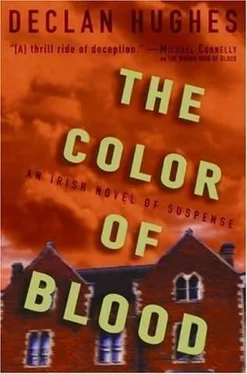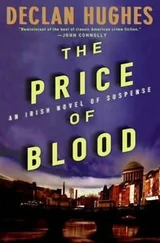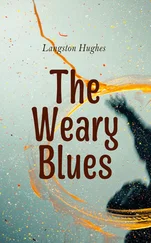“But you can tell me what you think.”
David Manuel angled his head from side to side, as if weighing up his options.
“I think Emily, to use a not very technical term, has been acting out. And acting out is not inconsistent with anger at her parents. And that anger may have many causes.”
“Might one of the causes be sexual abuse?”
Manuel said nothing, so I went on.
“Her aunt told me Emily’s mother was abused as a child. She certainly seemed to have an extremely competitive attitude to her daughter when it came to sex. And the fact that Emily let herself be photographed and filmed having sex, well, I’ve dealt with girls who’ve gone into that world. You could say the porn industry is based on a whole bunch of angry, abused women ‘acting out.’ And we ignore their pain and pretend to believe them when they say they’re reclaiming the control that was stolen from them, that they’re ‘empowered’; they were already degraded as children, and we become complicit in their further degradation as disturbed, malformed adults; we’re like the keepers in an asylum, raping the patients over and over again and insisting they’re in charge.”
“You’re a moralist, Mr. Loy.”
“Aren’t you? Or can you not tell me about that either? Was Emily Howard sexually abused?”
“I don’t know, is the truth.”
“Do you know what she thought?”
“That, I certainly can’t tell you.”
“This is a serious business.”
“And I assure you, I’m taking it seriously. I intend to talk to Emily as soon as possible. Depending on what she feels free to share-”
“What about Jonathan?”
Manuel put a hand up to his mouth, then instantly removed it; an echo, conscious or unconscious, of Jonathan O’Connor’s inhibited mannerisms.
“I would say, that in many Irish families, going back through the years, the children who were abused and the children who weren’t, in many respects often resemble each other. They exhibit similar symptoms and vulnerabilities. And so it is very dangerous, even when a child-I’m talking about adult children, you understand, the child-parent relationship-it can be dangerous even when a tale of past abuse is raised, for the therapist automatically to assume that what is being recounted is the literal truth. Or alternatively, to believe someone’s ferocious denials that no abuse took place, particularly when you’ve heard from that person’s siblings that it most certainly did.”
“Why is that? Why would people believe they had been abused when they had not? Why would they deny it when it had occurred?”
David Manuel took off his glasses and polished them on a corner of his linen shirt.
“I believe it stems from…from a cultural legacy in this country, a legacy of deep-rooted worthlessness that was inculcated in the individual and handed down through the generations. Man handing on misery to man as Larkin put it. The English enforced the idea that being Irish was an inferior state. The Catholic Church instilled a sense of fear and shame, not just about sex, about everything, about our very existence: work and pray, work and pray. Poverty, of course, a history of poverty played its part in undermining any sense we might have of our worth, of our personal identity. And the crawthumpers and bogtrotters who replaced the Brits, the pious fools and gombeens and Irish-language fanatics who told us we couldn’t all expect to live in our own country, and then made sure half of us had to emigrate by their insularity and sheer bloody incompetence. All internalized by our parents and grandparents, always the same message: we’re worth nothing, and we deserve less. And now, of course, we have money, and the Church is no longer a force, and we’re still hiding behind the lies, we keep insisting nothing bad has happened, we live in determined, alcoholic furies of denial. ‘We’re grand now,’ we laugh, with our legendary sense of humor. But you can’t shake off all that…what is it the Catholic Church used to call its teaching, ‘formation.’ You can’t just get rid of it. It’s, ah, ‘part of what we are.’”
I wasn’t sure I followed everything Manuel said, but I nodded just the same.
“I wouldn’t have thought Larkin was the most inspiring laureate for a therapist,” I said.
“It depends what you think a therapist is,” Manuel said. “People think therapists are all about dredging up what your parents did to you and then blaming them for it and feeling better about yourself as a result.”
“Isn’t that what they are about? I see you’ve a row of Alice Miller books there on the shelf. Emily had a bunch of them in her bedroom. Isn’t that her M.O.? It’s all Mummy and Daddy’s fault? Every child a damaged child?”
“Well of course, in a way she’s right. But that doesn’t mean the parents are to blame.”
“You’re speaking in riddles. Either someone is to blame or he isn’t.”
“And now you’re speaking like a cop. Look, in regard to the Howards, I think…I think if you want to know about what’s going on in that family in the present, you need to be investigating the past, Mr. Loy. It’s not what Emily and her cousin did last week, or last year. It’s what happened twenty, thirty years ago that counts.”
“Is that what Emily has been talking to you about?”
“As I said, I need to speak to Emily. If she agrees to what I ask…is it to you or the Guards I should talk?”
“Talk to me. I’m not just a cop. The Guards only care about the killer.”
“And what do you care about, Mr. Loy?”
“Oh, I care about the killer too. But most of all, I care about the truth.”
I didn’t know what to make of David Manuel. On the one hand, he sounded like a columnist for a Sunday newspaper, with his elaborate theories and historical justifications for why the Irish are the most unhappy nation on earth; on the other, he seemed like he wanted to help, and genuinely concerned about Emily Howard. I had some more coffee in Ranelagh in one of those uncomfortable little shops with tiny metal tables and chairs and high stools all packed too close together. None of the serving staff was Irish. David Manuel might have said something in our collective psyche prevented us from working in cafés, a postcolonial superiority complex that didn’t permit us to wait on people without being obnoxious to them, perhaps. Whatever the reason, it was all to the good; the European staff was friendly and pleasant and didn’t make you feel you were burdening them with your custom, or detaining them from more important pursuits like text-messaging their friends and rolling their eyes. I leafed through the rest of the papers. Two things caught my eye: one was a follow-up item about a recent report into clerical child sex abuse in a rural diocese. It highlighted the way in which, time after time, when the original allegations had been made against priests who had turned out to be guilty of abuse, the local communities had automatically closed ranks-with the priest, and against the accusers, ostracizing them within their own villages for daring to speak out. The other was an article about obstetricians and gynecologists who had worked over the years in hospitals bound by a Catholic code of ethics, and detailed a number of incidents in which obstetricians had performed hysterectomies on women who might have had complications with future pregnancies; sterilization was against the Catholic “ethos” and so removing the womb was seen as preferable. It also outlined a practice called symphysiotomy, which involved cracking and widening the pelvis of women who might require repeat cesarean sections. I couldn’t work out if or why cesarean sections were against the Catholic “ethos” in themselves, but they were considered high-risk procedures in the past; the fear seemed to be that women, rather than take the risks, might employ some form of artificial contraception, or undergo sterilization. In practice, symphysiotomies gave women crippling bone injuries and permanent bowel and bladder problems; those who gave birth to further children were often left bedridden. Again, these barbarities were prescribed by the Church, but enforced enthusiastically by its many willing lay helpers.
Читать дальше










